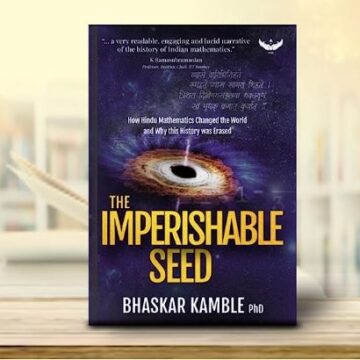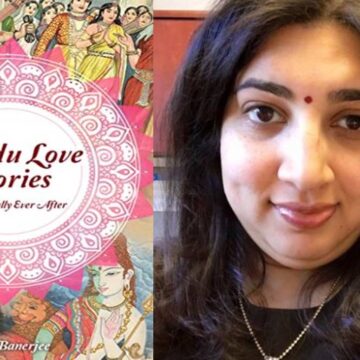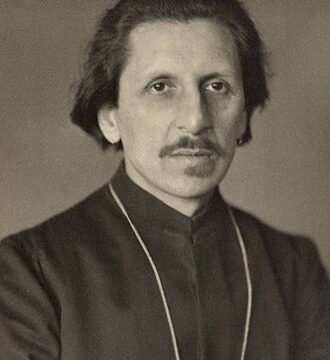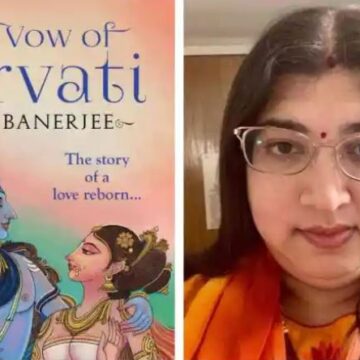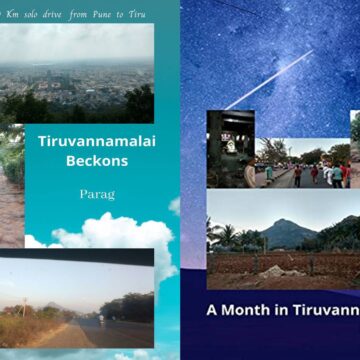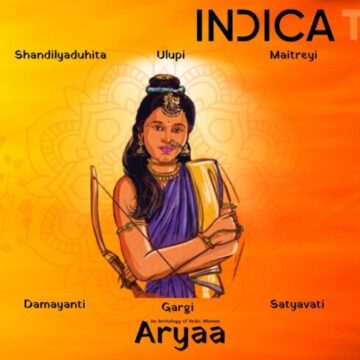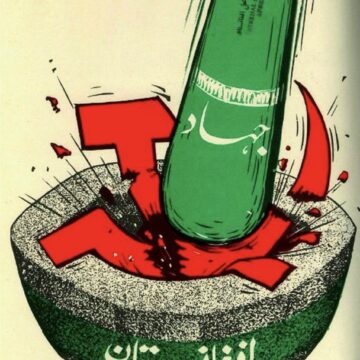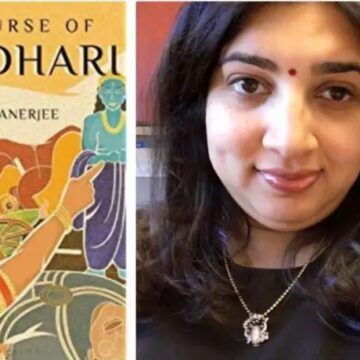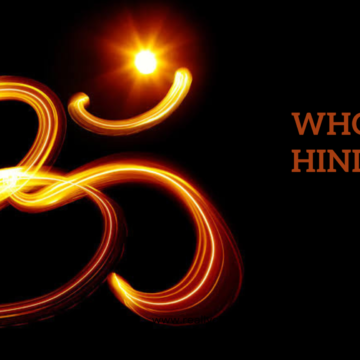Dr. Pingali Gopal reviews 'The Imperishable Seed' By Bhaskar Kamble, a theoretical physicist from IIT Kanpur and presently a data scientist in Germany.
The linear progression of history from a primitive past to an advanced future, deeply entrenched in western philosophy, embeds itself in Indians even today as a classic case of ‘colonial consciousness’. Bhaskar has done a brilliant job of describing the history of mathematics, a much ignored subject in our educational systems, and tracing the roots of many subjects to the genius mathematicians of ancient and mediaeval India.
Tag: <span>history</span>
Hindu Love Stories by Aditi Banerjee – A Review
In this review of "Hindu Love Stories" by Aditi Banerjee, we learn about the author's motivation behind writing the book; and her treatment of her characters. She brings forth the popular tales, as well as some lesser known ones; and shows us that some of the lore known to us as tales of duty and surrender can also be viewed from the Hindu view of love, which is very different from the single-hued romantic love marketed by the West.
Ananda K. Coomaraswamy on Education in India
This article is a summary and paraphrasing of three of the important essays by Ananda K. Coomaraswamy on the English education of those times (Education in India; Memory in Education; and Music and Education in India).
These three brilliant essays appear in the book Essays in National Idealism. He wrote on an overwhelming variety of topics, which perhaps would require a lifetime of study for any individual.
The aim of this article is to stimulate readers to undertake a serious journey to the writings of Coomaraswamy, a person whose rediscovery means a lot to present India, confused by a mass of rhetoric eulogising the notions of "modernity" and progress.
The reality of a hundred years ago, that he highlights in these essays, is unambiguously still relevant to India, with its acceptance of both the English language as the major medium of instruction and secularism as the guiding principle of our curricula.
‘The Vow of Parvati’ by Aditi Banerjee: A Review
Rohan Raghav Sharma reviews Aditi Banerjee's book "The Vow of Parvati", and gives us his impression of the retelling as well as the writer's approach towards the different episodes in the life of Devi in her different births and roopas.
The Hārītīputras — Contesting distortionary narratives about the origins of the Ćāḷukyās
Anirudh Kanisetty’s book ‘Lords of the Deccan’ claims that the Ćāḷukyās were originally agriculturalists who formed into bands of brigands going about looting villages and towns, amassing wealth which emboldened them to lay claim to the terrorized territories as sovereigns, legitimised by védic sacrifices.
Lakshmi Prasad J, in his rebuttal, researches and unearths that the Ćāḷukyas of Bādāmī claim descent from Hārīti, a royal matriarch from antiquity, associated with a string of illustrious dynasties. The matronym, Hārītīputra finds mention in the royal panegyrics of at least half a dozen dynasties of Deccan.
With so much information about Calukyas being available in public domain for decades now, one expects a young researcher to be better informed and not get influenced into weaving Bollywood-esque portrayal of our ancestors.
‘Tiruvannamalai Beckons’ and ‘A Month In Tiruvannamalai’ by Parag Shah – A Review
Rohan Raghav Sharma reviews two interconnected books, by the same author, on the same subject - 'Tiruvannamalai Beckons' and 'A Month In Tiruvannamalai'.
He critiques the writing style as well as the content and delves into the lore of the mystic mountain of Tiruvannamalai, in this well-penned piece.
‘Aryaa’ – An Anthology of Vedic Women – Review
"Stories ranging from the Warrior princess Chitraganda who fights alongside Arjuna to the bold princess Ulupi who approaches Arjuna for the union of her own accord to Queen Subhadra who finds a different way of carrying out her dharma and supporting her husband than the conventional way one expects a wife to. Characters etched in the minds of popular imagination such as Satyavati, Shakuntala, and the duo Nala-Damayanti are also presented in a narrative that cannot fail to entertain and arouse interest. The most metaphysical and philosophical stories are undoubtedly those of Gargi, the Brahmavadini, and Maitreyi, the scholarly wife of the famed Yajnavalkya. These stories prove that while there were women steeped in the Shastric worldview, they were not purposely debarred from aspiring towards education and a spiritual path."
In this review of 'Aryaa - An Anthology of Vedic Women' Rohan Raghav Sharma discusses the need for such a book before delving into each of the ten stories told in the book. He gives detailed insights into each story along with his critique of the writing styles of the different writers.
The Fate Of Muslims Under Soviet Rule : A Review
"Communism, as the logical outcome of materialism, cannot but be hostile to religion in all its aspects. Thus from the very beginning, the Communists aimed at the destruction of religious belief and worship in Soviet Russia."
Halley Kalyan pens a review of “The Fate Of Muslims Under Soviet Rule” - a booklet about Soviet government rule in regions that had a significant population of practicing Muslims, by Erich W Bethman (1958); and highlights the shared antagonism towards religion (Hinduism in particular in the Indian context) between the Communist dogma and the Indian version of Secularism.
‘The Curse of Gandhari’ by Aditi Banerjee: A Review
Rohan Raghav Sharma reviews Aditi Banerjee's book titled: "The Curse of Gandhari"; and takes us on a journey through the plot, while analysing the construction of the narrative alongwith his understanding of the author's thoughts and approach.
Hindu, Hinduism, Hindudtva – Part 2
In the second part, Dr. Pingali Gopal discusses the evolution of political Hindutva after independence, and sheds light on the failure to define the basic terms as we struggle with the alleged rise of ‘Hindu fundamentalism'.

